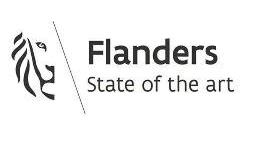
- Donor: Government of Flanders
- Project Start Date: 2019-01-01
- Project End Date: 2021-12-31
- Project Location: South Africa
While over the past two decades South Africa has become a middle-income country and an emerging economy, poverty and inequalities remain high in global comparison, with unemployment averaging 26%, nearly 50% among youth (Statistics South Africa 2018), and a Gini coefficient of around 63 in 2014 (World Bank). At the same time, the country faces massive environmental challenges, which are closely linked to the adverse effects of climate change.

The challenges linked to climate change limit future economic prosperity and societal well-being, as they have begun to impact resource availability and economic development, hitting hardest those at the base of the pyramid (BoP). Accordingly, there is a great potential for the proliferation of climate-smart enterprises to assist in adapting to climate change effects to address social and economic needs.
In this context, the project “Reaping the Potential of Entrepreneurship for a Climate-Smart Inclusive Green Economy in South Africa” intends to support innovative entrepreneurial solutions to contribute to the evidence base for climate change adaptation (CCA), bringing about a climate-resilient society and an inclusive green economy, which addresses the country’s triple challenges of poverty, unemployment, and inequality.
This is a three-year project implemented by Indalo Inclusive in partnership with the Innovation Hub, The Climate Innovation Centre South Africa, and is supported by the Government of Flanders aimed to achieve this overall objective: Climate resilience of South African rural communities is sustainably enhanced through a market-led approach of strengthening innovative, economically viable climate-smart enterprises making available solutions for climate change adaptation and shaping a conducive ecosystem for climate-smart enterprises.
The project also aims to achieve the below specific objectives:
- An increased number of climate-smart enterprises replicates and innovates solutions for climate change adaptation to reduce the climate vulnerability of local communities and businesses.
- Enhanced performance of small and growing enterprises contributing to climate change adaptation accelerates their climate change adaptation impacts and their contributions to a green and inclusive South African economy
- An enabling environment (regulatory frameworks, support services, policy implementation) for climate-smart enterprises is strengthened and stimulates private-sector driven climate change adaptation in South Africa
- The engagement of multiple actors in CCA is promoted, creating additional initiatives and support/financing mechanisms for CCA and climate-smart enterprises.
Since its inception in 2019, the Programme has incubated 11 Post Proof of Concept Phase enterprises involved in the Climate Adaptation and Green Economy. An additional cohort of the posted proof of concept enterprises will be implemented in 2021-2022.
In addition, the Programme has trained over 60 starter-level entrepreneurs and will train an additional 60 starter-level entrepreneurs within the 3 years of project implementation in the Limpopo, Mpumalanga, Kwa-Zulu Natal, and the Eastern provinces of the country. To strengthen the BDS support to our entrepreneurs, two (2) Training of Trainers have been implemented in the 1st and 2nd years of the project implementation with a total of 44 Business Development Service Providers equipped to support eco-inclusive enterprises.
In addition, the implementation of the Climate Finance and Policy workshops have begun, and the first workshops took place in the Eastern Cape and Limpopo Provinces respectively. Findings from both workshops are consolidated and will be utilized further in the development of concept notes for mobilization of resources and partnerships for project implementation for Limpopo and the Eastern Cape provinces.
Further small working groups will continue with key actors in the development of the concept notes between June and September 2021. These processes are implemented with the African Centre for the Green Economy who is a key technical and knowledge partner of the project as well as other regionally based organizations such as the Eastern Cape Development Corporation (ECDC) and others.
